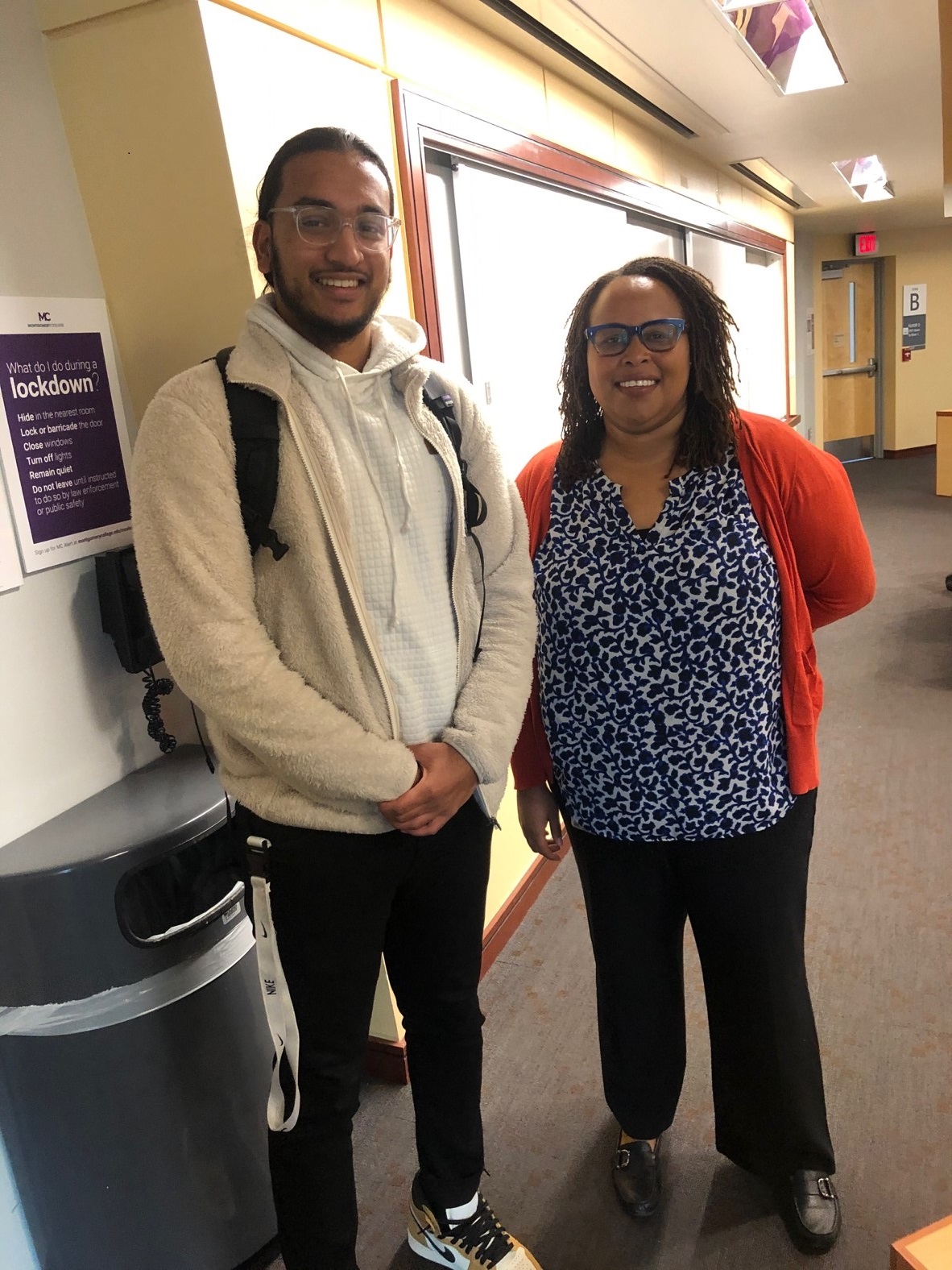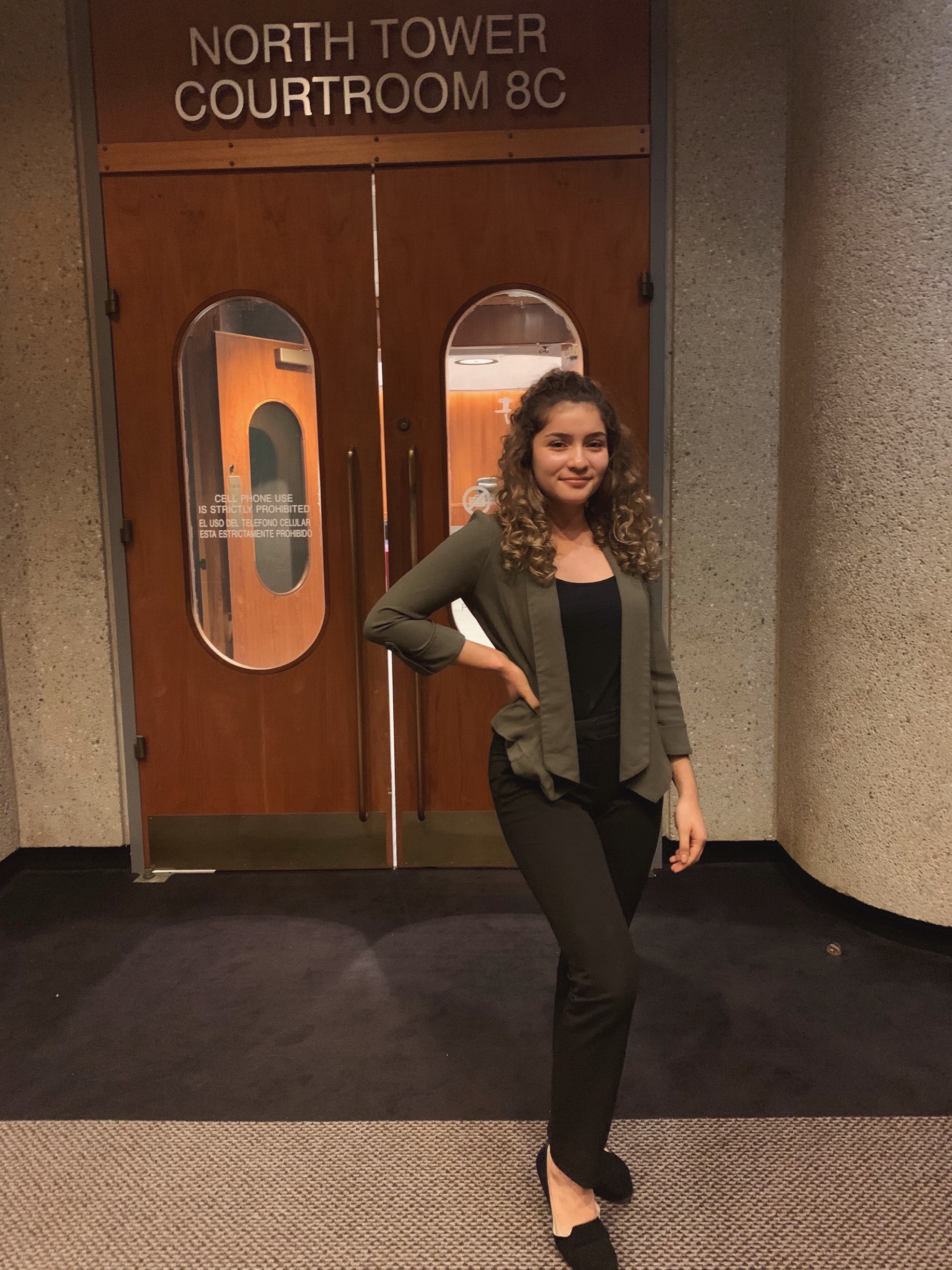Insights by Shayna Berman On Tuesday, November 19, I attended a Montgomery College (MC) to…
 by Luke Knafels
by Luke Knafels
On March 6, 2018, I attended Dr. Pollard’s “Defining America: Dialogues Across Difference” forum with guest Joshua Johnson. Mr. Johnson is the host of WAMU’s 1A, a radio show that discusses front page news seen on the 1A section of newspapers. Johnson says that the deeper meaning of 1A comes from the First Amendment, the basic rules of the road for how we interact with one another in a democracy. The purpose of the show is not only to inform and spread awareness, but also to be radically inclusive for all listeners, specifically those who lack the means to speak their beliefs freely. Johnson recalls that when the show debuted in late 2016, people couldn’t go home to Thanksgiving, they skipped Christmas because of the election. 1A is like a laboratory for Johnson, meaning that once he enters the studio, he must be completely objective and clinical. While he has political leanings of his own, Johnson cleanses himself of his own biases to better understand the views of the listeners of the show, dissect with respect as he calls it. That way, everyone’s viewpoints can be expressed on the show, a unique quality in today’s media.
 As listeners, we are responsible for what media we consume, especially since anyone can publish anything nowadays. Media bias and misinformation have been around since Guttenberg’s printing press, so having an understanding of the author’s viewpoints and context on issues will make more sense. The best information comes from traceable sources for maximum accountability and reliability. Not all news outlets intend to inform, so be careful about those that flood the market with high volume and high shock value to sell a quick click for ad revenue. At the end of the day, get a balanced perspective on issues from both sides, but make sure that when entering the river of media, remember the information to use for future recollection and not just recall being soaked.
As listeners, we are responsible for what media we consume, especially since anyone can publish anything nowadays. Media bias and misinformation have been around since Guttenberg’s printing press, so having an understanding of the author’s viewpoints and context on issues will make more sense. The best information comes from traceable sources for maximum accountability and reliability. Not all news outlets intend to inform, so be careful about those that flood the market with high volume and high shock value to sell a quick click for ad revenue. At the end of the day, get a balanced perspective on issues from both sides, but make sure that when entering the river of media, remember the information to use for future recollection and not just recall being soaked.
Perhaps the most important lesson I learned from Mr. Johnson was how to listen completely. The opposite of talking is not listening, but rather waiting. All to often, we miss out on conversations because instead of listening, we are only thinking of the next thing to say and wait until the other person is done talking. This is especially apparent when talking to frustrated people like the police reform advocate Johnson hosted on air. As usual, Johnson interviewed his guest, but no matter the question, this guest answered with the same monologue every time. Show listeners tweeted and called in to complain about the guest. But Johnson heard a crack in the man’s voice that any other host would have missed. To this, Johnson deviated from his premade list of questions and asked his guest if his time working for Baltimore PD was traumatizing. The ex-military, ex-police officer broke down and replied “I put people behind bars that are better than me,” creating an understanding between the advocate and the listeners that previously wanted him out.
Like most people , I probably would have given up on this man and left him to vent by himself or waited for him to stop and just go through the motions. Johnson’s active listening taught me to be patient with people by listening to them completely and restate back to them like they said it to show that I listened. In the past, I would interrupt to make suggestions and advice to people that were hurting. Since hearing Johnson last week, I want to be even more present for people now that I understand the comforting value of just letting people talk about what’s going on in their lives.
, I probably would have given up on this man and left him to vent by himself or waited for him to stop and just go through the motions. Johnson’s active listening taught me to be patient with people by listening to them completely and restate back to them like they said it to show that I listened. In the past, I would interrupt to make suggestions and advice to people that were hurting. Since hearing Johnson last week, I want to be even more present for people now that I understand the comforting value of just letting people talk about what’s going on in their lives.
If you missed Mr. Johnson’s talk and want to see him yourself, you can! Here is a link to the recorded event.





This Post Has 0 Comments